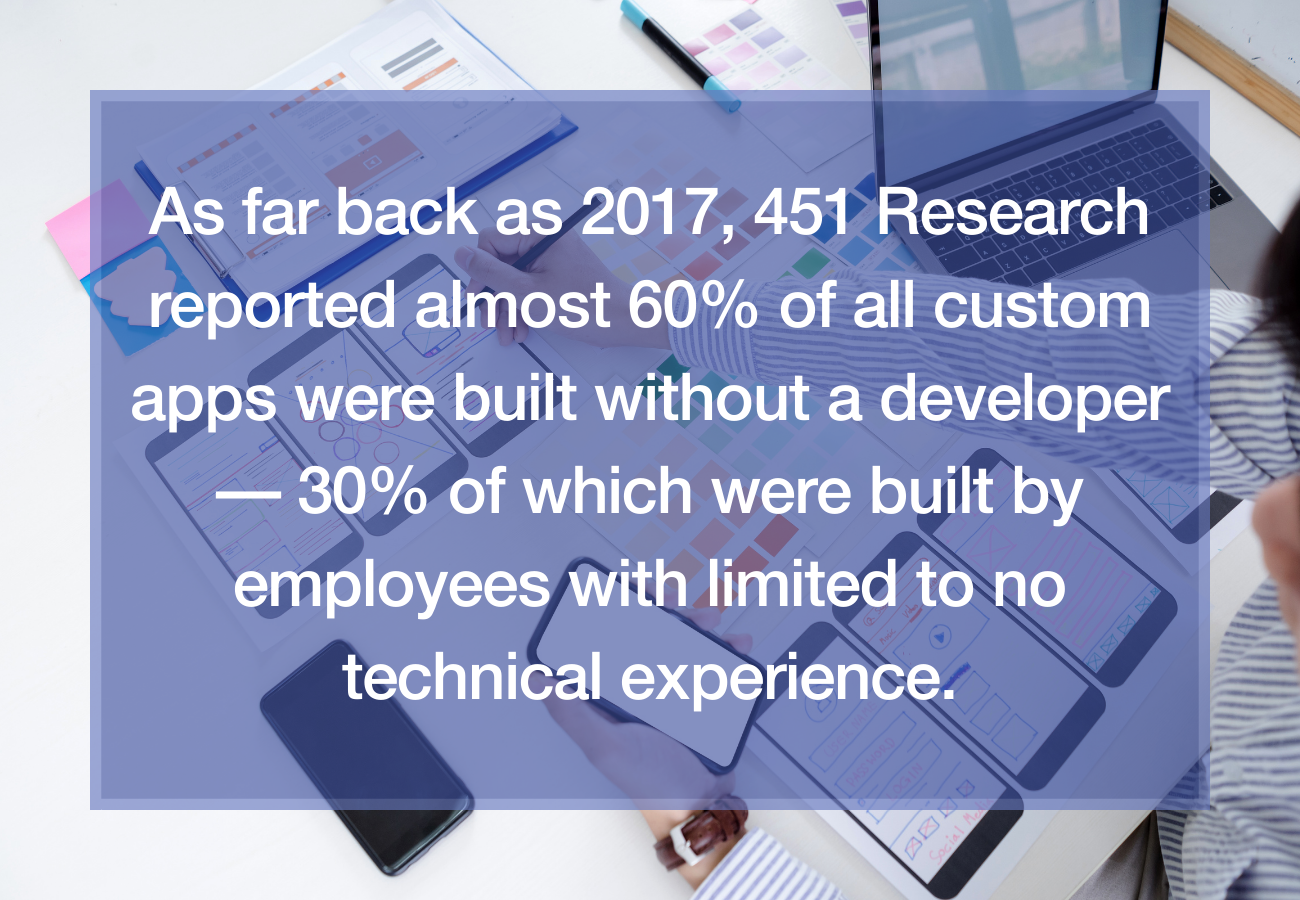Traditionally, if you wanted to build a custom mobile app, you needed to hire a developer to write the code, shape it into an app, and then manage the software after launch. The process of developing a native app could take months to years, and cost anywhere from $40,000 to $120,000+. Due to this long runway and the high expense, custom mobile app adoption has historically been restricted to technology companies and major corporations.
These days, low-code and no-code mobile apps offer a more agile, affordable alternative — without sacrificing brand identity or analytic insight. The speed of low-code/no-code app development has led to rapid adoption, especially following the outbreak of COVID-19. In a world suddenly rendered contactless, mobile apps went from luxury to necessity.
Low-code became so prevalent during the pandemic that Software Development Times declared 2021 “The Year of Low Code.”
The drawback? Low-code app development still requires a degree of skill your average business owner doesn’t possess — and likely doesn’t have the time to learn. Even no-code apps require users to understand how to map workflows to the mobile space.
Low-code vs. No-code vs. Hybrid vs. Turnkey Mobile Apps
Before you can determine the best approach to developing a mobile app, it’s important to understand the differences between them. Let’s compare these four options:
- Developer experience
- Customization
- Time
What’s a Low-code App?
Low-code development enables tech-literate businesses to design their own apps by editing blocks of pre-fabricated code. As IBM puts it, “Low-code platforms democratize app development, particularly for the ‘citizen’ developers—i.e. business users with little formal coding experience.”

What’s a No-code App?
No-code apps offer a fully automated process; businesses simply drag-and-drop elements to create their preferred app function and design.
What’s a Hybrid App?
A hybrid app is a web-based app that has been housed within a satellite mobile app. By embedding a browser link into a mobile app frame, the web app can control the back-end while remaining invisible to the user.
Forbes reports that 74% of the top 50 retail apps in the App Store are hybrid apps.
What’s a Turnkey App?
If custom apps are built from the ground up and low-code/no-code apps are DIY, turnkey apps are the happy middle.
- Complete customization – Turnkey apps offer numerous features that can be fully branded.
- Speed of launch – Unlike low-code platforms, turnkey apps can be developed in a matter of weeks.
- Easy website integration – Turnkey apps enable seamless integration between an existing website and the new mobile app.
- Update your app in real-time – A built-in CMS makes updates quick and effortless.
- Powerful analytics – Turnkey apps deliver customer insights on par with a custom-built or low-code app.
- Done for you – From strategy and launch to ASO, turnkey apps offer full support.

enCappture Makes Mobile Apps Easy
At enCappture, we are pioneering turnkey app development. Our mobile apps are customizable and delivered in just three weeks — a fraction of the time it takes to build a low-code app.
Beyond app development, enCappture’s Mobile Coaches help with content management, app-store optimization, and analytics.
To learn more about launching a branded mobile app with enCappture, schedule your free product demo today.
